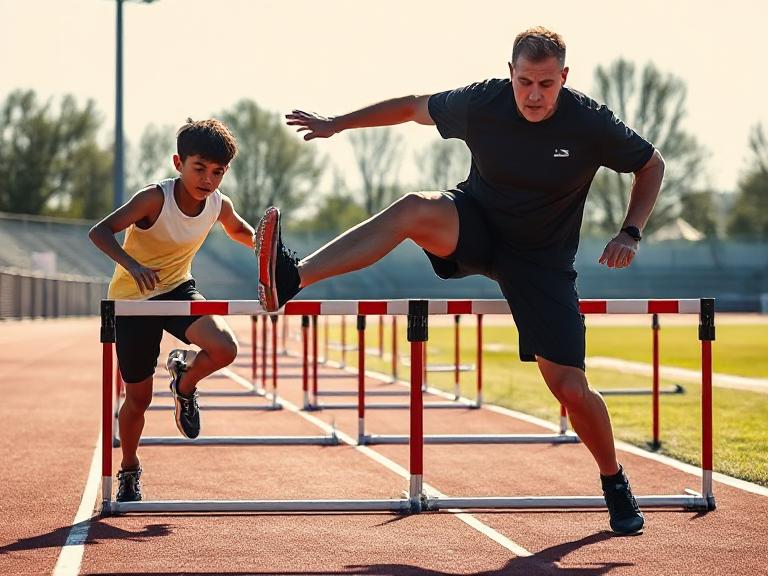Hurdling is a thrilling track and field event that combines speed, power, and precision. Whether you’re coaching beginners or refining an athlete’s form, knowing how to teach hurdle techniques effectively can make all the difference in performance.
This guide covers:
✔ Essential hurdle drills for beginners
✔ Proper form and mechanics
✔ Common mistakes and how to fix them
✔ Advanced techniques for competitive hurdlers
Table of Contents
- Understanding the Basics of Hurdling
- Step-by-Step Guide: How to Teach Hurdle Techniques
- Common Hurdling Mistakes & Fixes
- Advanced Hurdle Techniques
- Safety Tips for Hurdle Training
- Final Thoughts
Table of Contents
- Understanding the Basics of Hurdling
- Step-by-Step Guide: How to Teach Hurdle Techniques
- Common Hurdling Mistakes & Fixes
- Advanced Hurdle Techniques
- Safety Tips for Hurdle Training
- Final Thoughts
Understanding the Basics of Hurdling
Before diving into drills, athletes must grasp these key concepts:
- Hurdle height and spacing (varies by age/event)
- The 8-step approach to the first hurdle
- Lead leg vs. trail leg mechanics
- Arm action for balance and rhythm
Step-by-Step Guide: How to Teach Hurdle Techniques
1. Start With Wall Drills (No Hurdles)
Purpose: Teach proper lead leg and trail leg positions.
- Have athletes stand 2 feet from a wall.
- Lift the lead leg (knee up, foot flexed) and simulate trail leg extension.
- Hold for 3 seconds to build muscle memory.
2. Walk-Over Hurdles
Purpose: Develop coordination without speed.
- Set hurdles at the lowest height.
- Athletes walk toward hurdles, focusing on:
- High lead leg (knee drives up first)
- Trail leg swinging wide (not tucked)
- Minimal vertical displacement
3. 3-Step Drill Between Hurdles
Purpose: Establish rhythm and spacing.
- Place 3-5 hurdles 5-7 meters apart (adjust based on age).
- Athletes sprint with 3 steps between hurdles, emphasizing:
- Quick ground contact
- Forward lean (not sitting back)
- Aggressive arm drive
4. Hurdle Hop Overs
Purpose: Improve explosive power.
- Set 5-10 low hurdles in a row (1-2 feet apart).
- Athletes two-foot hop over each, focusing on:
- Minimal air time
- Fast arm swing
- Landing on balls of feet
Common Hurdling Mistakes & Fixes
| Mistake | Solution |
|---|---|
| Stuttering before hurdles | Mark a consistent takeoff spot |
| Trail leg dragging | Strengthen hip flexors; use band drills |
| Leaning backward | Cue “chest over thigh” on clearance |
| Slow arm action | Practice high-elbow sprint arms |
Advanced Hurdle Techniques
For competitive athletes:
✔ Alternate lead leg training (for flexibility in races)
✔ Block starts with hurdles (simulate race conditions)
✔ Video analysis to fine-tune form
Safety Tips for Hurdle Training
- Always warm up with dynamic stretches
- Start with lowered/foam hurdles for beginners
- Ensure proper spacing to prevent crashes
Final Thoughts
Mastering how to teach hurdle techniques requires patience and progressive drills. By breaking down each component—from lead leg mechanics to rhythm drills—you’ll build confident, efficient hurdlers.
Pro Tip: Record practice sessions to visually demonstrate corrections!
